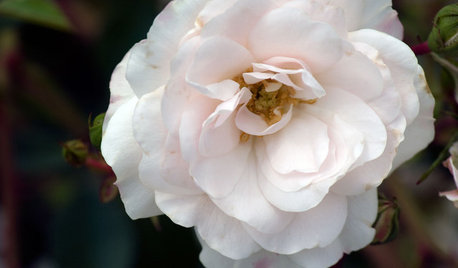Fresh, pure manure
dottyinduncan
15 years ago
Related Stories

GARDENING GUIDESThe Poop Scoop: Enrich Your Soil With Good Old Manure
Get over the ick factor already — this natural super-ingredient for soil has so many benefits, you'll wonder why you ever went chemical
Full Story
GARDENING GUIDES5 Favorite White Roses for a Purely Beautiful Garden
How does your garden glow? With roses that look like light and smell divine
Full Story
WHITEWhite Slipcovers for Pure Practicality
With a washing machine and bleach on your side, white slipcovers for couches and chairs keep your furniture looking pristine
Full Story
HOUZZ TOURSHouzz Tour: Lauren Liess's Pure Style
Tour a Designer's Beautiful, Livable Family Home
Full Story
DECORATING GUIDESClean Start: Fresh-Faced White Planking
White-plank walls add simple style and enough texture to keep things interesting
Full Story
FEEL-GOOD HOMESimple Pleasures: The Joy of Fresh Sheets
Make your bed a place of comfort and relaxation with good-quality linens, ample pillows and other pleasing accoutrements
Full Story
FRONT YARD IDEASWelcome Edibles Into the Front Yard for Fresh Food and More
Give your front yard design a boost and maybe even make new friends by growing fruits and vegetables
Full Story
VINTAGE STYLEMy Houzz: A Fresh Start in a Welcoming 1950s Home
Family and friends help a Melbourne homeowner create a comfortable space that beautifully reflects her personality
Full Story
BATHROOM DESIGNRoom of the Day: A Salvaged Bathroom Full of Fresh Ideas
Entwined pipes as faucets, old doorknobs as towel hooks and swaths of concrete bring function and attitude to a master bath
Full Story
PRODUCT PICKSGuest Picks: Fresh Summer Bedding
When the weather calls for more than just a sheet, these lightweight options are just right for staving off nighttime chills
Full Story


digdirt2
Lloyd
Related Discussions
Using Fresh Goat Manure
Q
Horse Manure Too Fresh. Now What?
Q
Adding Fresh Cow Manure to Compost Pile
Q
Fresh horse manure...when can I use it safely?
Q
Lloyd
digdirt2
digdirt2
Lloyd
Lloyd
dottyinduncanOriginal Author
digdirt2
Lloyd
leira
gardengal48 (PNW Z8/9)
User
Lloyd
Kimmsr
dchall_san_antonio
digdirt2
rj_hythloday
gardengal48 (PNW Z8/9)
Lloyd
luckygal
digdirt2
Lloyd
suburbangreen
greenbean08_gw
Kimmsr
gardengal48 (PNW Z8/9)
dchall_san_antonio
digdirt2
Lloyd
luckygal
dchall_san_antonio
gratefulgardener3300
helenh
Lloyd